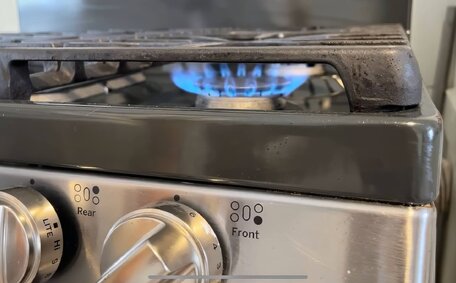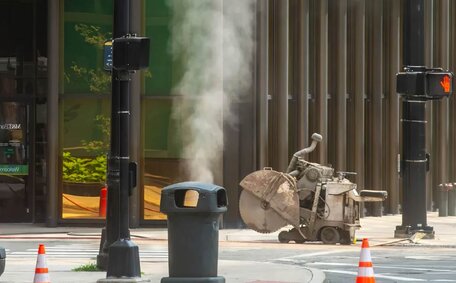What Causes Scale Buildup in Hot Water Systems
Scale buildup in your water heater is frequently attributed to the precipitation of high mineral content like calcium carbonate and magnesium during the heating process. Rockdale’s water supply often results in hard water, which leaves domestic hot water systems susceptible to scale development gradually.
As water is heated inside the system, the minerals become less soluble, eventually hardening and sticking to internal components as scale deposits. Scale build up is often indicated by unusual noises, obstructed water flow, blocked pipes, or inconsistent water temperatures.
Industry experts estimate scale formation occurs when just 1.6 gallons of water precipitates only 1 gramme of mineral solids onto surfaces within the hot water system. For Rockdale homeowners, I think those relying on their heating system every day, even minimal scale can hinder system efficiency and longevity.
Identifying the Signs of Scale in Your System
There are a few key ways to spot signs of scale buildup inside your hot water system as a Rockdale homeowner:
Inspect the Anode Rod
The anode rod is a crucial component in the descaling hot water tank, serving as a metal rod inside to attract scale. I advise you to inspect it more often than tank itself, and replace it if you encounter a heavy coating of calcium.
Examine the Heating Element
Electric heating elements can gather calcium and mineral deposits, which impede heat transfer and result in scale. Carefully remove the element to check for scale deposits, as these can also get in the way of its performance. Consider replacing it if the efficiency of your hot water heater seems compromised.
Check Internal Tank Surfaces
Evacuate some water, aiming to remove all calcium content, from your hot water tank and illuminate the interior with a flashlight to observe any scale on the tank walls. Small patches are normal but extensive flaky deposits indicate descaling is needed.
Catching scale early to descale your water system improves the efficiency your system benefits from and slices your energy bills. Contact Rockdale Plumbing if you notice scale build-up to ensure your water system few problems are professionally addressed.
Choosing the Right Descaling Tools and Solutions
As a Rockdale homeowner undertaking the descaling hot water heater due to scale buildup, there are several effective yet safe descaling tools and solutions to consider:
Basic Tools
- Pipe wrenches can take hold of and wrench out your system’s fittings and heating elements efficiently
- Bucket to capture descaling solution
- Safety glasses and gloves
Descaling Solutions
- Commercial descalers containing citric acid
- Distilled white vinegar - cheap and natural option
- CLR or Lime-A-Way cleaners
When selecting a descaling agent, think about how do the ingredients work, opt for products formulated for water systems to avoid corrosion or damage. White vinegar presents an eco-friendly choice for calcium lime scale removal, rather than harsh chemical options.
It’s essential to make sure you follow the instructions, letting the solution sit the required time to break down the scale before a comprehensive flush your water system with clean drinking water.
For severe buildup, Rockdale Plumbing’s professional descaling service can get powerful commercial cleaners to safely restore your system’s ability to efficiently heat water.
Step-by-Step Guide to Descaling Your Hot Water System
Follow this step-by-step guide to properly descale your water heating system and your pipes:
- Turn off power to water heater at the circuit breaker.
- Turn off water at the isolation valves on the cold water line.
- Open a hot water tap or the pressure relief valve to depressurize the system.
- Attach garden hose to the water drain valve and divert the flow back into a bucket.
- Open drain valve completely to let the water out, draining 5-10 gallons.
- Close drain valve and remove garden hose.
- Pour descaling or antifreeze solution, similar to those used for an espresso machine, into the storage tank via the hot water tap.
- Reopen cold water supply so solution circulates into system.
- Following a good soak, let run the heater to allow the descaling solution to reach max temperature.
- Turn off power to water heater at the circuit breaker.
- Rerun previous draining steps to remove descaling solution.
- Close drain and remove garden hose.
- Reopen cold water supply fully.
- Reactivate the power and then let the system run for a system few minutes to ensure proper flushing through the hot water taps.
Carefully follow manufacturer guidelines throughout. It’s a good idea to have a professional plumber descale your heater for ease and security.
Flushing the Tank and Pipes
Flush your tank and pipes as a crucial final step when descaling a hot water system. It removes any loosened scale debris and leftover descaling solution from inside the tank and pipes.
Follow these precautions when flushing:
- Flush with cold water only
- Flush water heaters for at least 5 minutes
- Flush through every hot water outlet in your home
You can do a thorough rinse by opening one tap at a time, running each hot water tap on full cold setting for 1-2 minutes. Flush toilets several times as well. This circulates fresh water through your entire system, rinsing it thoroughly.
Flushing prevents loose debris from re-depositing into your tank or plumbing. It also eradicates remaining acids, addressing the question of what can reset water pH back to its standard levels.
Examine the flushed water; a clear tank should be your cue that the sediment has been effectively flushed from your system. Repeat flushing until it runs clear. Your hot water system is then safely descaled and ready for use again.
Circulating Descaler Through System
The descaling process, involving circulation of the solution through the system, is vital to completely eradicate scale buildup. Allow the vinegar through, letting it flow and contact all internal components, pipes, heating elements, and tanks affected by lime scale.
After adding the descaling solution per the manufacturer’s instructions, turn the hot water system back on to circulate the solution. For your tankless unit, activate the internal pump to enhance the efficiency of the heat exchange if feasible. Let the descaler circulate for at least 45 minutes to 1 hour for optimal results.
Periodically, switch different hot water taps on and off to direct the descaling solution into all parts of the plumbing system. This process ensures that any scale along the pipes or within the heat exchanger treat each other effectively. Take precautions against leaks when activating taps.
Circulating removes scale from critical components that would otherwise reduce heating efficiency and system longevity over time. It also prevents scale debris from breaking free and clogging plumbing fixtures down the line.
Rinsing Away Loosened Scale
After circulating the descaler through the hot water system, it’s crucial to thoroughly rinse away any loosened scale debris. Leaving residue in the tank or pipes could allow sediment to re-solidify as new scale later.
Follow these best practises when rinsing your descaled system:
- Flush only with cold water - hot water can re-deposit sediments
- Run every hot water tap for a few minutes
- Check water clarity - repeat flushing if still cloudy
- Confirm pH tested back to normal drinking levels
Opening all outlets allows fresh water to flow and descale tankless water heater systems, pipes, and tanks. This removes lingering acidity and carries away dissolved scale particles before they reattach to surfaces.
Rockdale Plumbing also offers professional flushing services after descaling to ensure your hot water system returns to full, scale-free operation.
Preventing Future Scale Buildup
There are several effective ways that Rockdale homeowners can help prevent scale buildup from recurring in their hot water systems:
Install a Water Softener
Water softeners remove minerals from the water supply before they enter the system. By binding calcium and magnesium ions, softeners dramatically reduce scale formation.
Replace Anodes Regularly
You should also consider replacing magnesium or aluminum tank anode rods every 2-5 years for continuous scale protection.
Flush the Tank Yearly
Draining and flushing your tank once year rinses away loose sediment to prevent new scale build-up.
Service Heating Elements
Inspecting elements yearly and descaling any buildup helps maintain heating efficiency and longevity.
Adhering to these straightforward water heater maintenance steps can extend the optimal performance of your hot water system. For professional guidance on scale prevention, the expert plumbers at Rockdale Plumbing are always happy to help.
When to Call a Professional Plumber
As a Rockdale homeowner, do think about the key times when you should call professional plumbers at Rockdale Plumbing for assistance with your hot water system:
Extensive Scale Buildup
If descaling reveals heavy scale accumulation coating large portions of the interior tank walls or heating elements, bringing in a pro is wise. Significant scale buildup can cause the need for commercial descaling solutions and power flushing equipment beyond what’s reasonably DIY.
Descaling Doesn’t Restore Performance
If your system continues to be inefficient or the tactics don’t work even after descaling, further servicing might be necessary. Our technicians can troubleshoot underlying issues and provide necessary repairs.
Safety Concerns
Improper processes, I don’t need to tell you, can also lead to your tank to corrode, leaks, electrical issues, and further problems. If you have any grey areas regarding know-how to safely or effectively descale on your own, call us to take care of it.
If you’re thinking, 'How can I get professional descaling and repairs backed by over 25 years of experience?' contact the Rockdale Plumbing team today via email or call 1300 349 338.






